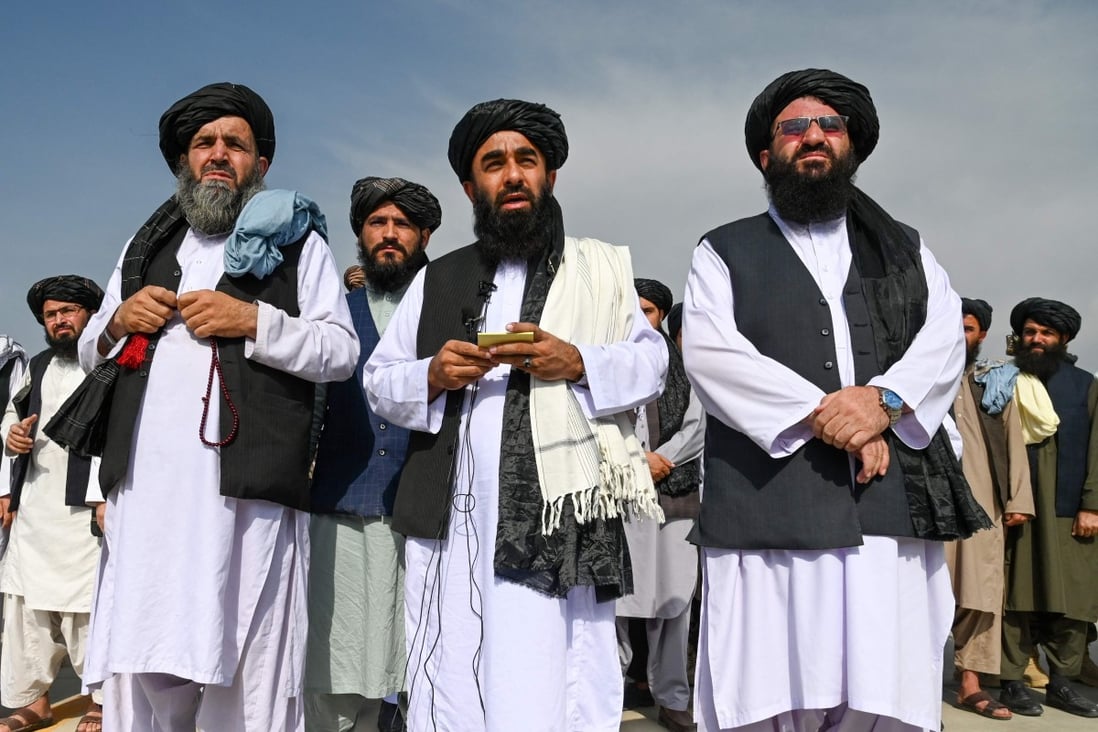
The heads of state of Shanghai Cooperation Organisation countries meeting in Dushanbe, capital of Tajikistan, later this week are expected to seek a consensus on dealing with the Taliban government in Afghanistan, analysts said.
Afghanistan joined the regional security grouping led by China and Russia as one of its four observer states in 2012, along with Belarus, Iran and Mongolia.
The US-backed Afghan government was toppled by the Taliban in August after American-led foreign forces withdrew, and the militant group announced an interim government last week. However, the international community is observing its further moves and has yet to recognise the Taliban government in Kabul.
Analysts said the summit was likely to discuss the likelihood of the Taliban government to inherit observer status, as the SCO had yet to recognise the legitimacy of the Taliban, which was still on the United Nations’ terrorism sanctions list.
They also said the SCO summit would try to reach a consensus on asking the international community to ease sanctions on the Taliban, as a first step for the Taliban to be recognised.
Taliban in Kabul maintaining discipline, Chinese businesspeople say
“It’s unlikely that the Taliban government will be invited as an observer to this year’s SCO summit, which also marks the 20th anniversary of its founding,” said Sun Yu, a Eurasian security researcher at Andijan State University in Uzbekistan.
“The SCO’s eight formal members have maintained caution in dealing with the Taliban government, they welcome its efforts to reestablish governance, but still reiterate the demands of counterterrorism and the importance of implementation of ‘an inclusive policy’ for the Afghan people.”
“This year’s SCO summit will see whether the members are able to reach consensus on their stance toward the Taliban government [in Afghanistan], and request the international community to ease pressure on the Taliban,” Sun said, referring to the UN Security Council sanctions on the hardline militant group.
Apart from China and Russia, the group includes the Central Asian nations of Kazakhstan, Kyrgyzstan, Tajikistan and Uzbekistan, as well as India and Pakistan.
Eagle Yin, research fellow at the China Foundation for International and Strategic Studies in Beijing, also expects the SCO leaders to reach a consensus on how to express their stance on the Taliban government in Afghanistan.
“But I don’t expect the SCO will come up with any specific and clear political announcement to recognise the political status of the Afghan Taliban government, because the organisation has yet to establish a formal government, while only a few countries have acknowledged its legitimacy,” Yin said.
“Indeed, bilateral ties between the SCO rotating chair Tajikistan and the Taliban are not good. The former supports the anti-Taliban force in Panjshir Valley.”
The SCO will recognise the Afghan Taliban regime only when all eight member states achieve a unanimous vote, according to the group’s constitution.
As the two great powers of the SCO, China and Russia are expected to display their guiding roles and ability to contribute to peace and stability in the region, as countries in Central Asia face a double challenge: the Covid-19 pandemic and the security crisis in the aftermath of the withdrawal of US troops from war-torn Afghanistan, according to Su Chang, a China-Russia expert at the Chinese Academy of Social Sciences.
“The ongoing crisis in Afghanistan should be a key agenda for the regional security mechanism – with humanitarian aid, counterterrorism and drug control being the main topics,” Su said.
However, Sun said the focus of China and Russia’s efforts would differ, as their interests in Afghanistan were different.
“China will pay attention to the long-term stability and economic development of Afghanistan because those would impact Beijing’s Belt and Road Initiative projects in Central Asia, and Chinese enterprises have invested in many great projects in that country,” he said.
Taliban to support belt and road plan of ‘trustworthy friend’ China
“Russia doesn’t care so much about social unrest in Afghanistan because it has no economic interests there. Moscow’s worries are about Afghan refugees and smuggled drugs entering Russian territory.”
Meanwhile, two independent sources in Beijing said President Xi Jinping was unlikely to attend the leadership summit in Dushanbe, and that top diplomat Yang Jiechi and Foreign Minister Wang Yi were likely to represent Xi at the meeting.
“President Xi may give a welcome speech to the summit via video conference, because he has been busy with internal affairs,” one of the sources, who requested anonymity due to the sensitivity of the issue, told the South China Morning Post.
President Vladimir Putin of Russia will be attending the two-day summit from Thursday, as will the leaders of several other SCO member states. A number of bilateral meetings are being held on the sidelines of the event, Russian news agency Tass reported on Monday.







